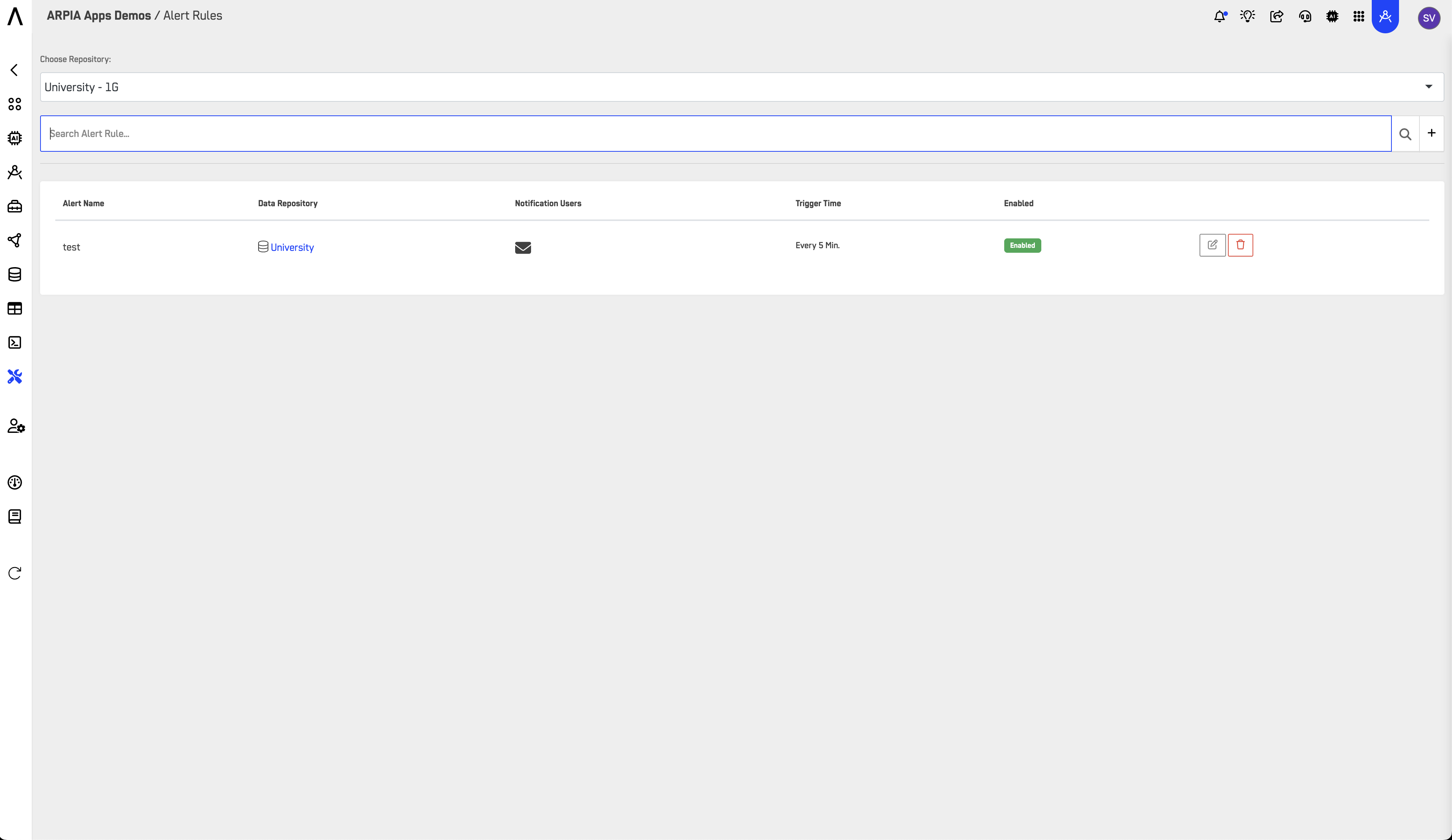Alert Rules
🚨 Alert Rules Overview
Alert Rules provide a robust framework for creating automated subprocesses that analyze data within repositories based on predefined SQL queries or Knowledge Graph filters. This enables proactive monitoring to detect specific conditions or matches within your data. When such conditions are identified, alerts are triggered, and notifications are sent to designated platforms, including the web, email, and mobile apps, according to user session configurations.

🌟 Key Features
-
🧑💻 SQL-Based Analysis
Define SQL queries to specify conditions for data analysis, allowing precise detection of relevant matches or anomalies in the data. -
📊 Knowledge Graph-Based Analysis
Establish filters based on columns in your Knowledge Graph to detect specific conditions effectively. -
🔔 Automated Notifications
Automatically trigger alerts and notifications when conditions are met, ensuring timely awareness and response to critical events. -
📱 Multi-Platform Notifications
Send notifications across various platforms, including web, email, and mobile apps. External applications such as Telegram, Discord, or Slack can also be integrated, enhancing communication flexibility. -
👥 Configurable User Sessions
Customize alert configurations to align with user sessions and preferences, ensuring that notifications reach the right stakeholders at the right time.
💡 Benefits
Alert Rules simplify monitoring by automating the detection of critical conditions. By leveraging SQL queries, organizations can proactively identify anomalies, patterns, or events, enabling swift corrective actions and improving operational efficiency.
🔍 Use Cases
-
Real-Time Monitoring
Monitor data streams in real time to detect anomalies or deviations from expected patterns. -
Compliance Monitoring
Set up alerts for specific data thresholds or conditions to ensure compliance with regulatory requirements.
Alert Rules empower organizations to stay ahead of potential issues, ensuring that critical events are detected and acted upon promptly, making your data operations more efficient and proactive.
Updated 6 months ago
